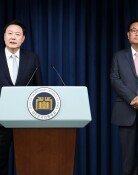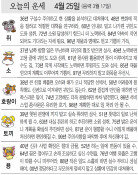'S. Korea is facing complex headwinds amid trade deficit,' says IMF deputy managing director
'S. Korea is facing complex headwinds amid trade deficit,' says IMF deputy managing director
Posted March. 23, 2023 07:50,
Updated March. 25, 2023 08:00
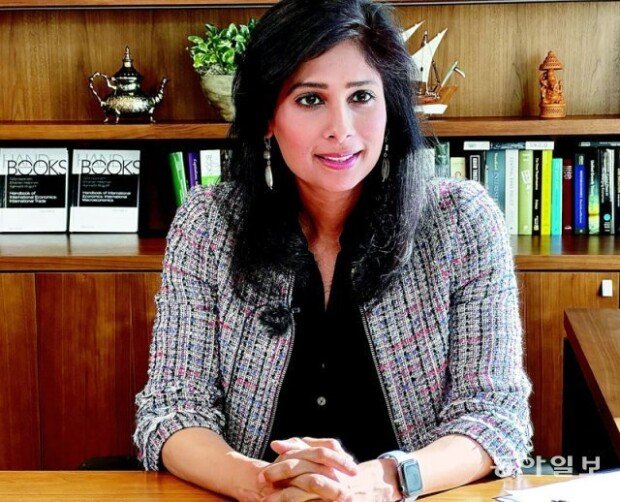
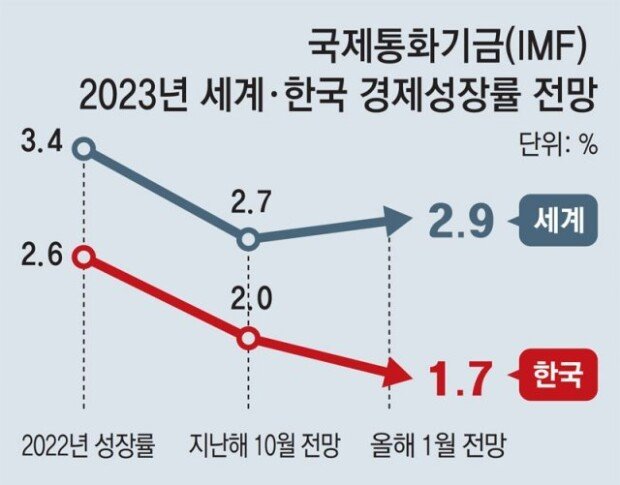
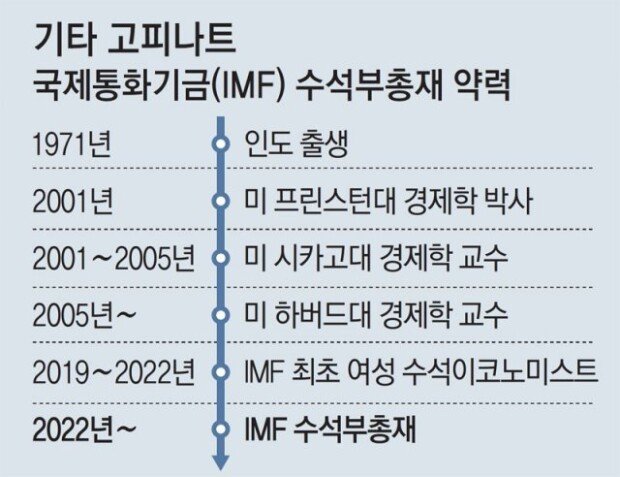
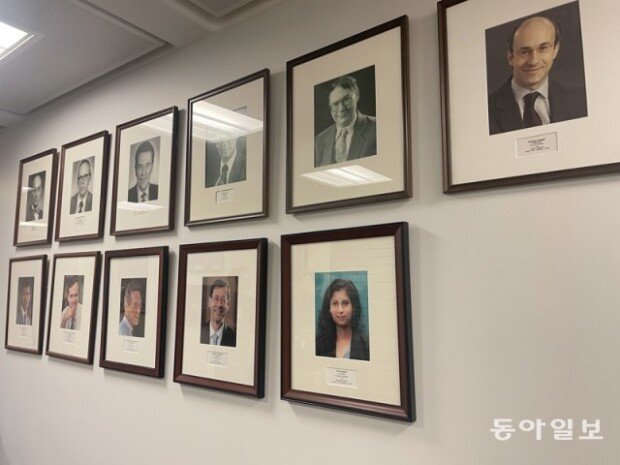
“The South Korean economy is facing complex headwinds, including increasing trade deficit from a slowdown in the semiconductor industry and weak domestic demand due to high-interest rates,” First deputy managing director of the International Monetary Fund (IMF) Gita Gopinath said on the crises facing the South Korean economy at the headquarters of the IMF in Washington on March 9 (local time). The IMF lowered the projected economic growth rate for South Korea by 0.3 percentage points to 1.7 percent from its previous projection in October last year. She mentioned a combination of internal and external factors as a reason for decreasing the country’s growth projection three consecutive times since July last year.
Gopinath is the IMF’s second-in-command and served as the first female chief economist of the organization. She is garnering attention as a rising ‘star’ female economist in the U.S. She got her B.A. degree from the University of Delhi and a Ph.D. from Princeton University before teaching economics at Harvard University. Here are her answers to the questions regarding the South Korean economy.
―The IMF lowered its economic growth projection for South Korea while raising it for major countries, including the U.S. and China.
“The IMF raised its economic growth projects for some countries by a little bit, but the growth of the world economy is fundamentally slowing down. In the case of South Korea, a slowdown in the semiconductor industry, as well as the slowing economic growth of the global economy, are causing the country’s trade deficit to increase. In addition, weak domestic demand caused by high-interest rates and falling housing prices is a dominating factor for the country’s economic slowdown. Meanwhile, China’s reopening will have a positive impact on South Korea.”
―The Federal Reserve System (Fed) is expected to implement intensive austerity measures while inflation in the U.S. is expected to rebound. How should the Bank of Korea respond to this?
“We agree with the stance of the Fed’s Chair Jerome Powell that the inflation resolution just began and is far from ending it. The U.S.’s price indexes in January indicate that the core consumer price index is still high, and there is a lot that the central bank can do. The U.S.’s interest rate should be further raised, and intensive austerity measures should be maintained for enough time.
South Korea’s inflation is above the target, which means the country’s base rate should focus on controlling prices. In addition, the Bank of Korea should make decisions based on the overall economic situation of the country, such as weak demand, slowdown of the labor market, and foreign exchange effects from the difference between the interest rates in South Korea and the U.S.
―The U.S. economy is showing a strong recovery. How likely do you think high-interest rates can bring on an economic recession?
“Our opinion is that there is a very narrow path for the U.S. economy to avoid recession. However, let me be clear that it is a very narrow path. As the Fed has to raise interest rates and maintain higher levels for a long time, it will weaken demand over time.”
―The South Korean government’s debt ratio is close to 50 percent. How should the South Korean government manage its expenses amid an economic slowdown?
“The South Korean government still has room for expenses compared to other advanced countries. The government will be able to react when there is a bigger economic shock in the future. In addition, the country should develop mid- to long-term responses from the financial perspective as it is facing a shift in the demographic structure due to seriously low birth rates.
―You have traveled through many countries, including a recent G20 meeting. What is your biggest concern about the global economy?
“My biggest worry is inflation. Inflations should be brought down to ensure better lives for all people. There could be inevitable prices in the process of doing so.
As a result of global ‘division,’ which is also affecting the South Korean economy, it is expected that seven percent of the gross world product will be permanently lost, which is equivalent to the economic size of Japan and Germany combined. The global economic division caused by the conflicts between the U.S. and China, the recent pandemic, and Russia's War in Ukraine poses a serious threat. We understand that many countries are concerned about the stability of the supply chain amid security issues. However, when each country tries to bring all production facilities to its own territory, all negative effects of such a division will unfold.”
―You have overcome a lot of ‘barriers,’ such as becoming the first female chief economist at the IMF. What was the biggest challenge?
“Breaking barriers requires chutzpah (chutzpah is Hebrew for boldness and shamelessness, often used to refer to Israel’s unique can-do spirit). I think I’m one of those who have always been confident and very hard-working.
The opportunities that society provides for women are also critical in breaking barriers. High-achieving women can make a significant impact on other women. In my case, IMF Director Christine Lagarde, the first female IMF Director, greatly influenced me. Being appointed as the first female chief economist at the IMF was significant in this regard. Overcoming prejudice against women is not only empowering for the individual, but it also helps other women.”
―How do you manage your work-life balance while digesting your busy minute-by-minute schedule?
“For me, achieving a work-life balance is a personal choice. I have always loved my job and desired to work extensively. Fortunately, my spouse has been incredibly supportive, enabling me to excel in my career. My 20-year-old son has been a pillar of support. Finding a supportive partner is crucial when seeking a work-life balance that works for you.”
―March 8 was International Women's Day. What do you want to say to Korean women?
“I want to tell them to reach out, seize opportunities, and expect society to give them what they want. It is also important to advocate for the necessary policy changes for society. While Korea has progressed in recent years, a significant gender gap still exists. A lot needs to be done to support women who wish to return to work after having children. Motherhood should not be a disadvantage, and mothers should be able to return to work. This is particularly important in light of Korea's aging population and low birth rate.”
Hyoun-Soo Kim kimhs@donga.com
Headline News
- Med professors announce intention to leave hospitals starting Thursday
- Bridge honoring Sgt. Moon Jae-sik unveiled in Pennsylvania
- Chief of Staff Chung tells presidential secretaries to stay away from politics
- US FTC bans noncompete agreements
- N. Korea launches cyberattacks on S. Korea's defense companies





